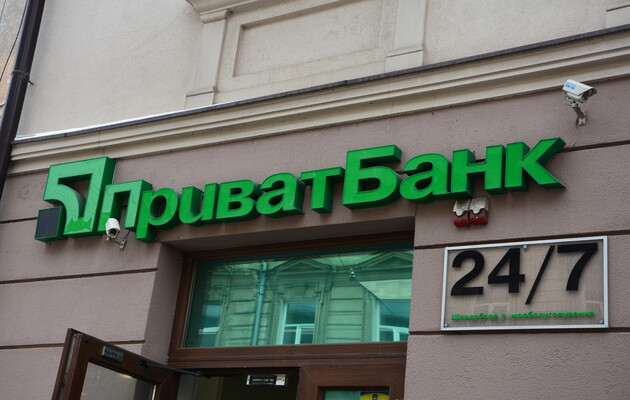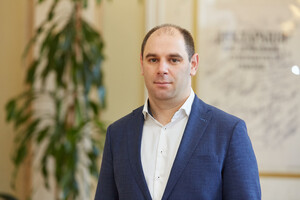How “to wring out” a billion dollars – a master class from Privatbank bondholders
Once a Russian businessman, an international investor and an individual proprietor visited a court…
This could be a good start to a funny story, if we were not talking about the Commercial Court of Kyiv. Although, considering that our judicial system is a world record holder for making biased and absurd decisions, our story will not be a happy one. However, this is still a very interesting and important case.
It began with a bail-in – the exchange of Privatbank's liabilities for its shares during nationalization. Oh yes, there is no end to this epic process... At that time, Privat Eurobond owners received new bank securities instead of bonds, which were then sold to the state for hryvnias. It is clear that the bondholders were dissatisfied and went to the London International Arbitration to prove the illegality of the bail-in. However, they did not prove that it is not legal. After the Bank of England recognized the Ukrainian bail-in as completely legitimate, the London arbitration made an unambiguous and final decision in favor of the bank. Apart from that, it was confirmed that the bank currently has no obligations to the plaintiffs, that is, it does not owe them a penny.
It is important that neither the decision of the Bank of England on the recognition of the exchange and its legality, nor the decision of the London Arbitration, was even tried to be challenged. They are final and binding upon all holders of the respective Eurobond issues.
Then everyone breathed a sigh of relief, because this was almost the only point in the history of the acquisition of Privatbank. Well, there is now a semicolon in this case, because six years after nationalization, individual creditors decided that it was still possible to win.
At one time, the National Bank of Ukraine submitted a request for bail-in recognition to the Bank of England, not because it was looking for support abroad, but because this recognition of the arbitration court is actually designed for the international settlement of disputes. It allows decisions made in one jurisdiction to be binding in other countries. Hardly anyone at that time expected that Ukraine would eventually become a country where the recognition of the Bank of England, as well as the decision of the London arbitration, is not taken into account. Thereby, now the question of hundreds of millions of dollars is in the hands of the judges of the Kyiv Commercial Court – that's where some of the creditors went to seek the truth.
They want to do something simple - challenge the contract to exchange liabilities for shares. This is not quite a logical decision, considering that after the decision of the Bank of England, any claims regarding this exchange have ceased to exist under the English law, i.e. enforcement of the relevant credit agreements is impossible, according to the letter of the law.
However, the plaintiffs claim that the exchange violates their rights, because now they cannot demand money from the bank for the old Eurobonds. It seems logical, but... Firstly, why did they realize this only now, and not when the Bank of England confirmed the exchange or when an international arbitration recognized its legality? It is even less clear why they are contesting the contract No. 63/2016 (on the exchange) in a Ukrainian court at all, since none of the plaintiffs is a party to this agreement, and their rights are not actually violated by this contract. Against this background, the fact that the creditor files a lawsuit against the bank directly, and not through the trustee, as it should be, is a trifle.
In fact, these are concise answers to the question of why there were no appeals earlier, and even more so in international arbitrations, because with so many absurdities and delusions only our courts accept them. In addition, only in a court like ours do they have a chance to win.
What kind of creditors are they?
A large number of offended creditors resembles, rather, a gathering of dissatisfied people. Here you will find such world names and investment sharks as J.P. Morgan Securities plc and UBS AG, the unremarkable Shakoor Capital Limited, and next to it the "offshore" Pala Assets Holdings Limited, controlled by the Russian sub-oligarch Vladimir Yorikh. In this context, we can also mention the individual proprietor Dmytro Sazonov.
There is no and cannot be any reasonable argument in favor of J.P. Morgan or UBS in this story – due to the fact that no one else understands for sure that after the decision of the international arbitration, it is illegal to take this case to the Kyiv Commercial Court, trying to circumvent the norms of the English law. All the more so in the company of Mr. Sazonov – it's also obscene.
Sazonov is a long-term manager of numerous companies of entrepreneur Vladyslav Dreger. Remember who he is? The man who first distributed the assets of the Zuyevsky Electromechanical Plant to judges and their drivers, and then, after three years in the pre-trial detention facility, went to meet the investigation and recorded "Tupytsky's tapes."
That bail-in did not cause any damage to Sazonov, even conditionally, and did not violate his rights. At the time of the bank nationalization, he was not even an individual proprietor, therefore, he purchased the bonds already after the exchange, well aware what kind of securities these were. Although, probably, he bought them not for the sake of profit, but precisely for the sake of participation in this process. He did it in order to strengthen, so to speak, his creditors.
The "revolver" targeted at …
The scandals don't end here, apparently, the plaintiffs, standing on a slippery path, decided to roll to the very bottom without slowing down. "Revolver" is a legal slang term that describes a way to bypass the system of automated distribution of cases between judges. Several identical lawsuits from different plaintiffs with insignificant technical errors are filed, the automated system scatters them among the judges, and as soon as even one of the cases gets to the right judge, the "revolver" fires and all the plaintiffs are united in this particular case. What about other lawsuits? They simply were taken away to eliminate technical errors, and they have not returned, it happens sometimes ...
In this story, a lawsuit from Shakoor Capital Limited "fired", and the rest of the plaintiffs gladly joined the case as third parties with independent claims.
The "revolver" targeted at judge Dmytro Baranov. By the way, he is an extraordinary person. In particular, he is famous for the fact that he studied four thousand pages of the case in 37 minutes in the lawsuit of the Nikopol ferroalloy plant against Privatbank and wrote the text of the decision in 60 thousand characters on the same day! The decision, of course, was in favor of the plant, and more precisely, in favor of Ihor Kolomoyskyi, who will definitely use Mr. Baranov's verdict to defend himself in international courts, to avoid accusations of fraud and not to return the money withdrawn from Privatbank. We have already written about it.
In the same case, Mr. Baranov is currently collecting documents and finding out whether the respectable plaintiffs have the funds to cover court costs. The next meeting is scheduled for mid-January, and the substantive consideration has not yet been started.
And what is the point in this case? What will happen if the plaintiffs do get their way and find the exchange agreement, confirmed by the Bank of England and international arbitration, illegal?
According to the plaintiffs, a decision in their favor in this case will allow them to challenge the decision of the Bank of England, and in the future, the decision of the international arbitration. That will return the state to the perspective of returning to the former Eurobond holders both the principal sums of the debts and the interest on them, i.e. more than a billion US dollars. In addition, this will be the second attempt to use the dubious decisions of Ukrainian judges (just one specific judge) to influence the courts of other jurisdictions. Igor Kolomoisky's handwriting is instantly recognizable. This fact definitely does not help us create the image of a country with a fair and impartial judiciary and zero tolerance to corruption.
Therefore, another possible consequence of the plaintiffs' victory is the appeal to Ukrainian courts of other bondholders, who will also want to return their money, bypassing international and Ukrainian norms. They have the right to do so because it is still possible here.
Read this article in russian and Ukrainian.
Please select it with the mouse and press Ctrl+Enter or Submit a bug














 Login with Google
Login with Google